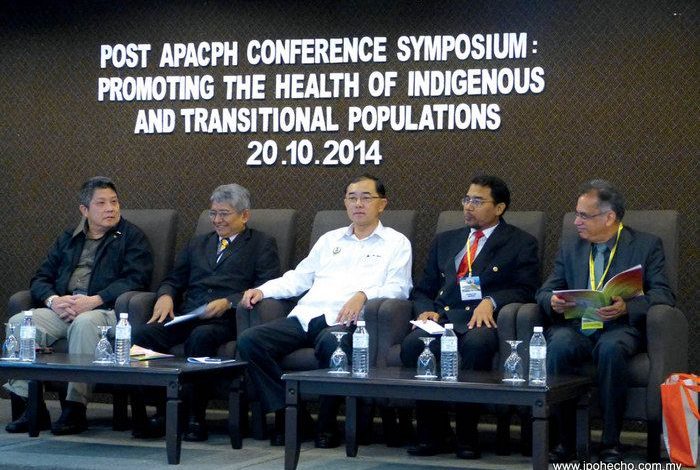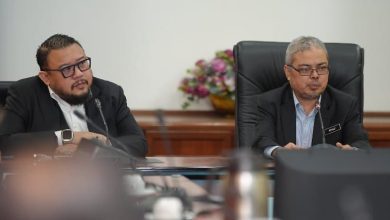

With the aim of creating a platform to bring together scientists and researchers interested in promoting the health of indigenous and transitional populations in the Asia Pacific region for the establishment of a centre of excellence under the Asia Pacific Academic Consortium for Public Health (APACPH), the Faculty of Medicine, University Kuala Lumpur Royal College of Medicine organised a post APACPH symposium. It was held at the Kinta Riverfront Hotel, Ipoh recently.
Titled “Promoting the Health of Indigenous and Transitional Populations”, the symposium was officiated by Dato’ Dr Mah Hang Soon, Executive Councillor for Health, Public Transport, National Integration, Non-Islamic Affairs and New Village Affairs.
There are 18 Orang Asli tribes in Peninsular Malaysia, representing less than one per cent of the total Malaysian population. Despite proactive socio-economic developments by the government, most remain poor. Poverty rate of the Orang Asli currently stands at 51 per cent with a hardcore poverty rate of 15 per cent compared to the national average of 7 and 1.5 per cent, respectively.
Poverty exacerbates the health problems faced by the Orang Asli community. They include malnourishment, tuberculosis, malaria, leprosy and intestinal parasitic infections. Alcohol intoxication and a high suicide rate are other related social ills affecting them.
Dato Mah, in his speech, said, “Education is the key in helping Orang Asli children escape the poverty trap. Through the Department of Orang Asli Development, we have initiated several educational programmes for these children.
“Meanwhile, the Health Ministry, besides ensuring clean water supply to the community, has implemented the supplementary food programme and the control of vector-borne diseases, among others.
“With efforts put in by the government, a handful of professionals have been produced. Still, by and large, Orang Asli children are lagging behind in terms of academic performance and recording a high-dropout rate despite the government’s incentive of RM2 a day per child to encourage them to attend classes.
“Non-governmental organisations, service organisations, volunteers and well-meaning individuals have also reached out to these Orang Asli communities. The Malaysian Medical Association runs medical camps and conducts medical screenings for the Orang Asli as well as putting them on a deworming programme.”
Dr Mah hoped that following the conclusion of the symposium, he would receive suggestions for the state government to consider ways to address the problems faced by the indigenous communities more effectively.
During the International Day of the World’s Indigenous Peoples in August, UN Secretary-General Ban Ki-moon, called upon everyone to recognise and celebrate the valuable and distinctive identities of indigenous peoples around the world.
The Orang Asli in Malaysia may be a minority but their contributions towards nation-building are undeniable.
Emily


